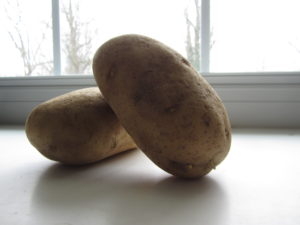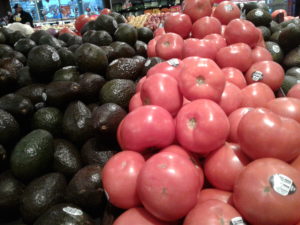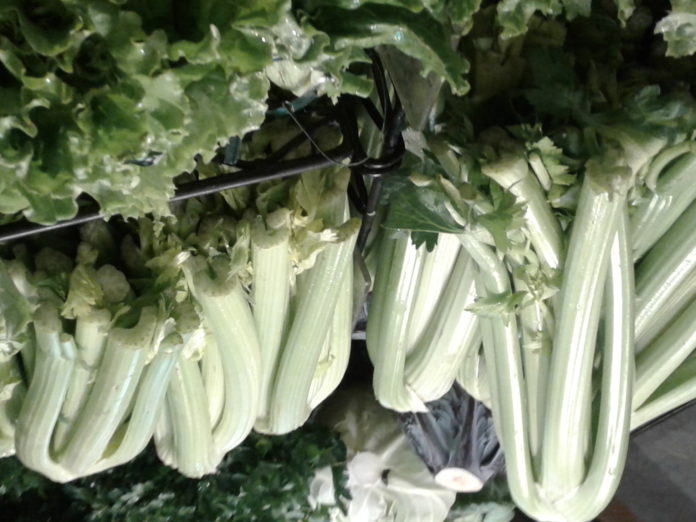Veganism is a popular trend on the rise, including among athletes, from runners such as Scott Jurek to basketball players like Salim Stoudamire. But how? Being an athlete takes a lot of nutrients and a stricter adherence to a balanced diet. One of the biggest issues most people have with veganism is accessing key nutrients like protein, most commonly found in animal-based products like meat, eggs, and dairy.
However, athletes such as Kendrick Farris, an Olympic weightlifter, bring up a good point in an interview with Men’s Fitness. It is possible to get too much protein, and much of the “protein” within meat and animal products ends up not getting used by the human body at all. Besides, the only reason meat is preferred for protein consumption is because it is more caloric-ally dense. Three ounces of a sirloin steak looks a lot smaller than 3 ounces of lettuce.

There are actually multiple foods humans can eat for receiving protein that do not come from the animal kingdom. Beans, peanut butter, lentils, and milk alternatives such as soy milk and almond milk, are all great ways to get protein. For breakfast, instead of eggs and bacon, try having a bowl of oatmeal or quinoa instead. Not only do they both contain protein, but they are also much better for cholesterol, and they are rich in anti-oxidants. For an extra kick of protein, you can even add chia seeds, a superfood with 5 grams of protein in only 2 tablespoons. There are even new vegan workout supplements and other products aimed towards avid health and fitness vegans looking to consume their necessary protein and other nutrients to continue being healthy and energized enough to work out when needed.
Plant protein also keeps a human feeling full for longer than animal-proteins. This also means the energy derived from plants has the capacity to last longer, partly because plants are easier to digest than meat products. The human body will spend less energy trying to break down the proteins in vegetables than it will for meat. In other words, a plate of beans will give you more energy than a chicken breast will.
Veganism has also been reported to give athletes a whole new energy in their life. Venus Williams, an all-star tennis player, withdrew from the Olympics after being diagnosed with Sjogren’s Syndrome, an auto-immune disease. However, once Williams transferred to a raw, vegan diet, she found rapid improvement in her health, and she was able to return to playing tennis. But it is not just the athletes with diseases who found improvement through a vegan diet. Normal athletes like Barny du Plessis, a body builder, found the vegan lifestyle not only let them continue their rigorous lifestyle, but it actually provided a noticeable improvement in their physical and mental health.

Now, a major problem that many people encounter with veganism is access to vegan food. So many commercial products and recipes call for animal products, even if it’s just a little bit of milk. It seems impossible to go vegan in a world so full of and dependent on meat and dairy. But it’s not impossible, and the pay off is worth it. Replacing pre-packaged snacks with fruit and replacing milk with soy milk are some good starting points.
Another thing to consider is looking up vegan recipes online. There’s a ton of them, and while they may not all be good, there are some delicious sounding ones. For example, consider trying Tikka Masala using beans and vegetables instead of chicken or looking for sandwich alternatives like falafels. I have had some amazing vegetable burgers that rival the real thing. (I have also had some veggie burgers that are awful, so sometimes it is the luck of the draw.) There are also plenty of stews and soups that can be made without meat. Try using vegetable stock instead of chicken or beef stock.
Becoming vegan seems like a daunting challenge, especially if you’re an athlete, but according to many athletes, the pay off is worth it. Some, like Kendrick Farris and Barny du Plessis, actively encourage athletes to go vegan. If you still get all the nutrients you need, veganism has a wealth of benefits. Even by starting off with a vegetarian diet, du Plessis says that an athlete will see a beneficial effect, both mentally and physically.





